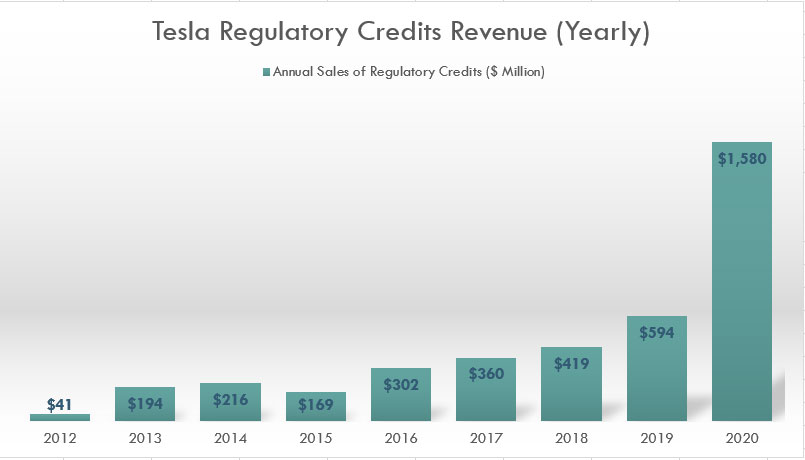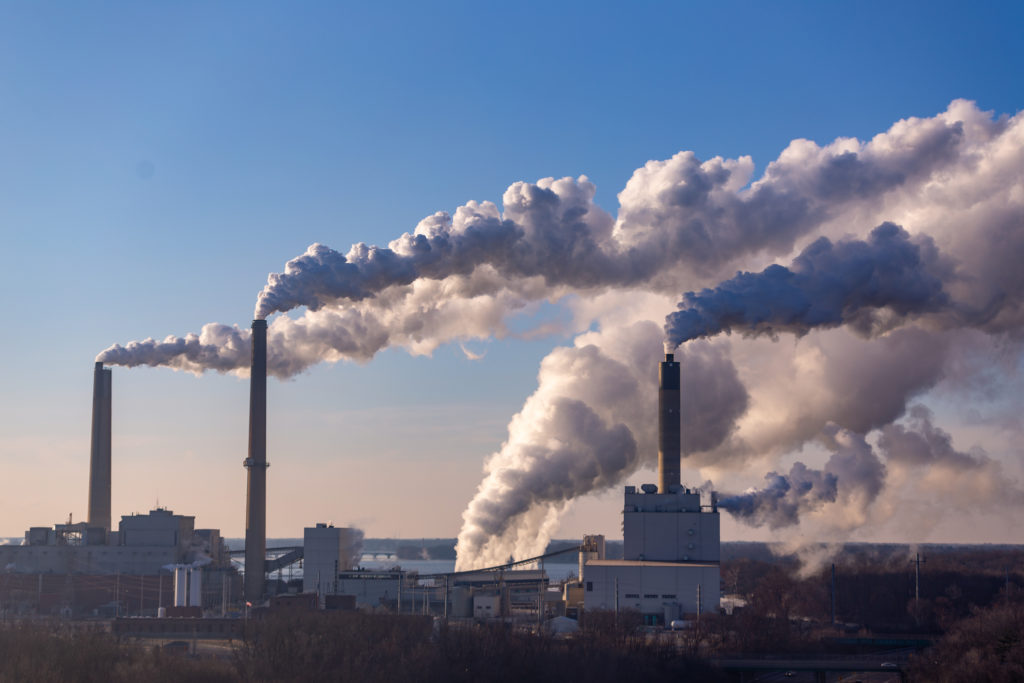Tesla’s move to allocate a $1.5 Billion chunk of its cash hoard to Bitcoin, two days ago, was applauded by Bitcoin investors as a sure-proof sign that corporations are going to go all-in in Bitcoin, elevate its price to new all-time-highs, and allow early investors to cash out for real money.
But Tesla’s investment in Bitcoin is very, very problematic on many levels.
One of Tesla’s main sources of income is its zero-emission vehicle credits, of which the company has received from various governments over $3 billion over the last 10 years. This taxpayer-funded subsidy has enabled Elon Musk’s company to survive over the years. The rationale of this subsidy is that electric vehicles (EVs) are much more environment-friendly, but face a big barrier to entry as they need to compete with more established gas-powered alternatives. So governments (mainly in the US) have subsidised the company’s efforts by helping it financially.

In a bizarre coincidence, Tesla has purchased almost the exact same amount of Bitcoin, as it has received in regulatory credits in 2020 ($1.5B versus $1.58B).
Tesla has also raised $10 billion from new share issues over 2020 alone, so it doesn’t really need those taxpayer-funded environmental subsidies anymore. To blow them all on Bitcoin is really, really weird, because
Bitcoin is an environmental disaster
65% of Bitcoin is mined in China, as miners take advantage of the free electricity there, especially thanks to coal, that makes up for 75% of its electricity mix. Bitcoin mining is a huge business, burning 63TWh of electricity last year alone. That’s 63 billion kWh, a unit that readers are more accustomed with. At 10 cents per kWh, that’s also $6 billion in electricity burned for the sake of running the Bitcoin network.
Bitcoin miners also face other expenses, like mining rigs - specialised computers that need to be replaced on a regular basis as new, more efficient ASICs come to the market, also contributing to worldwide pollution in the form of discarded electronics. But electrical consumption is the main expense.
Tesla’s $1.5 billion purchase of Bitcoin will mostly go to pay for those electricity bills, effectively funding 3 months of Bitcoin mining - most of which uses coal.
This is how all of Tesla’s 2020 US taxpayer-funded subsidies that were supposed to help the company save the environment, will end up funding coal-burning power plants in China.
Why
The $1.5B investment in Bitcoin is a drop in the ocean for Tesla. The company is in the top 5 largest companies in the US by market cap, and even if Bitcoin were to rise tenfold, this stake would still only stand for a mere 2% of its market cap. So why do it, at all?
Well, Elon Musk is a notorious attention-seeker, and he has an natural talent for getting it. His life story is littered with apparent blunders and mishaps that have steadily contributed to his brand.
The Bitcoiner community is well-known for its desperate craving for approval, and for people who would buy their coins. Remember, Bitcoin is only worth something because people are buying it, and given the massive costs related to its mining, you need a whole lot of people to continuously buy Bitcoin in order for its network to survive.
So buying a little bit of Bitcoin (relatively speaking) on his company’s account was a sure way to get the attention and applause Mr Musk needs, on a daily basis. Look, even I am talking about him. And when you are suffering from his condition, there’s no such thing as bad publicity. Bad mentions and good mentions count just the same.
But still, that was one ballsy move even by Elon’s standards.

